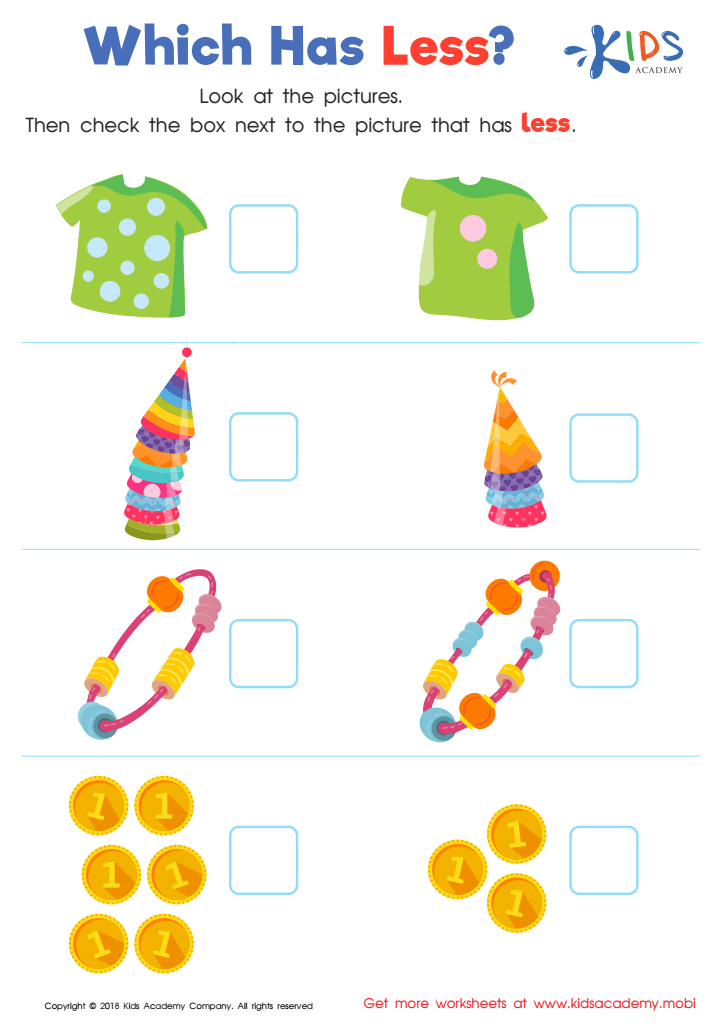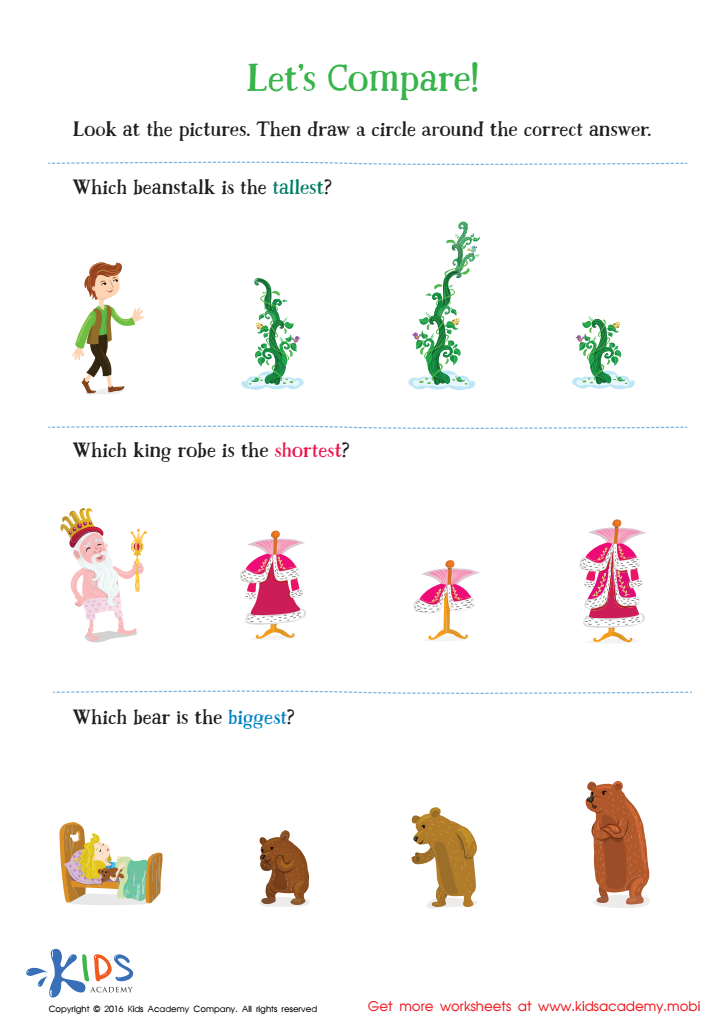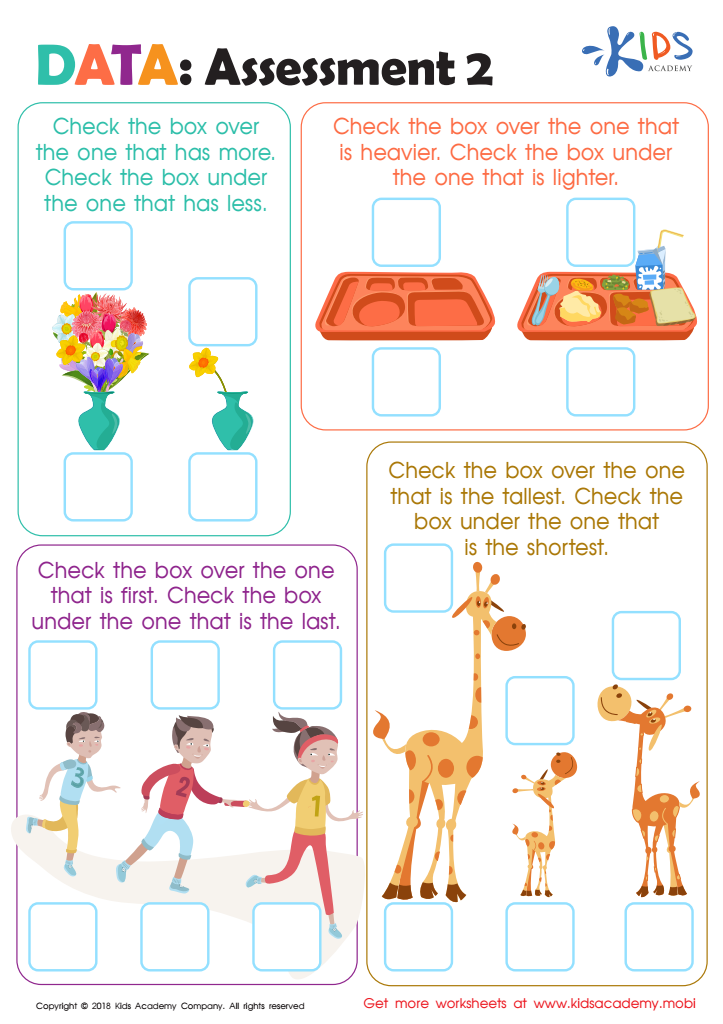Basic Math Skills Comparison Worksheets for Ages 3-6
3 filtered results
-
From - To
Enhance your child's foundational math skills with our "Basic Math Skills Comparison Worksheets" for ages 3-6! Designed to make learning fun and engaging, these worksheets help young learners understand essential concepts like greater than, less than, and equal to. Utilizing colorful visuals and relatable everyday objects, these activities foster early numeracy through interactive exercises. Parents and educators can easily access and print these worksheets to support classroom and home learning. Equip your little ones with the necessary skills for future success in math, building their confidence and critical thinking abilities. Start their math journey today with these delightful comparison worksheets!


Which Has Less? Worksheet


Fairy Tale Worksheet: Let's Compare


Data: Assessment 2 Worksheet
Understanding basic math skills for ages 3-6 is vital for parents and teachers as it lays the foundation for a child's future academic success and overall cognitive development. This early stage of learning focuses on essential skills such as number recognition, counting, simple addition and subtraction, and recognizing patterns. These skills are not only fundamental for higher-level math but also for developing critical thinking and problem-solving abilities.
By comparing math skills within this age group, educators and parents can identify individual strengths and address areas needing improvement. This awareness enables tailored instruction to meet each child's unique learning needs. Furthermore, early exposure to math concepts fosters a positive attitude towards learning, helping to mitigate math anxiety as children progress through their educational journey.
Additionally, strong foundational math skills have proven correlations with success in literacy and other subjects, reinforcing the interconnectedness of learning. By prioritizing math skill comparison and encouraging playful, engaging math activities, adults can create a stimulating environment that nurtures a child's curiosity and confidence. Ultimately, investing time and attention to basic math skills at this critical developmental stage prepares children not just for school, but for lifelong learning and success.
 Assign to My Students
Assign to My Students



















